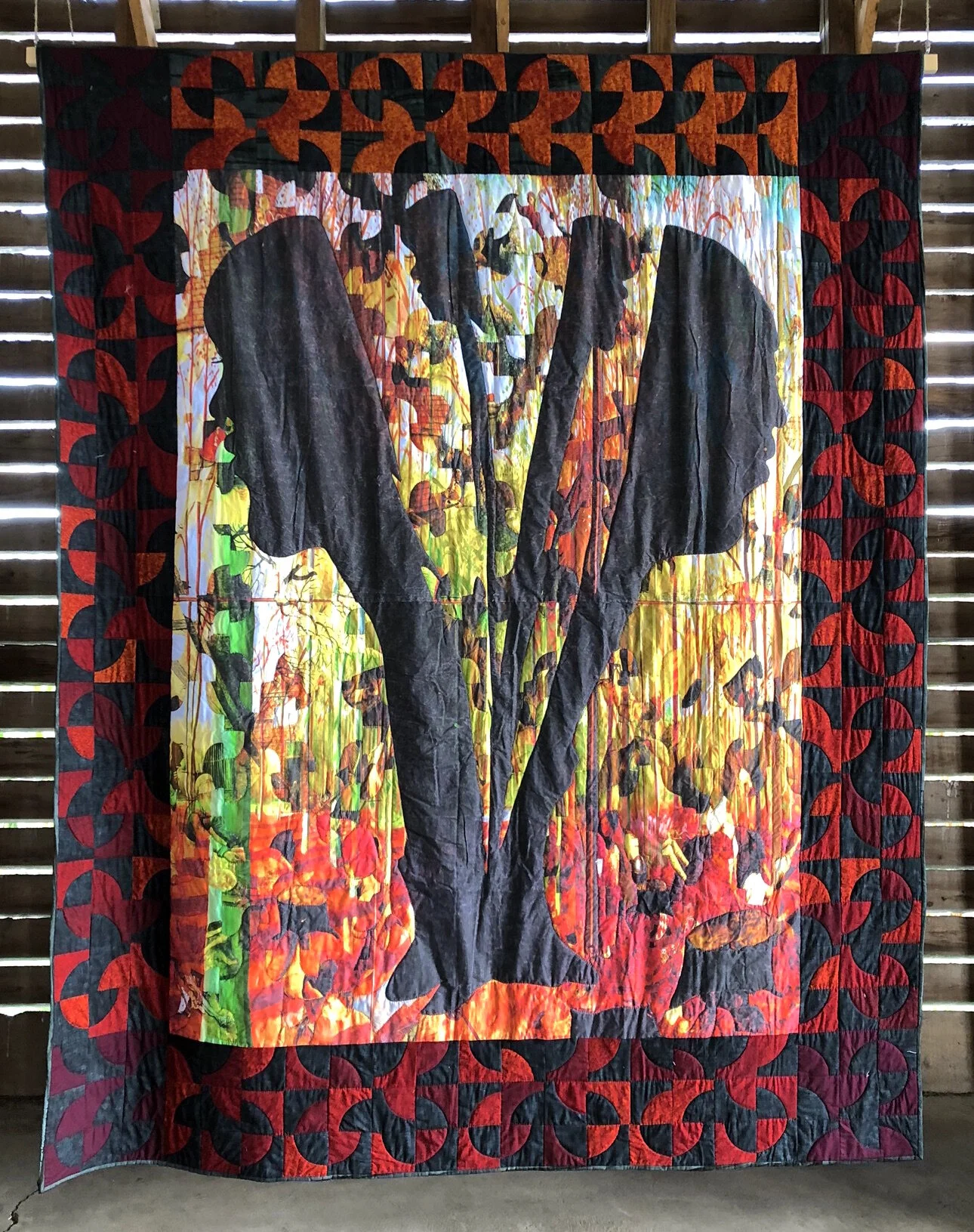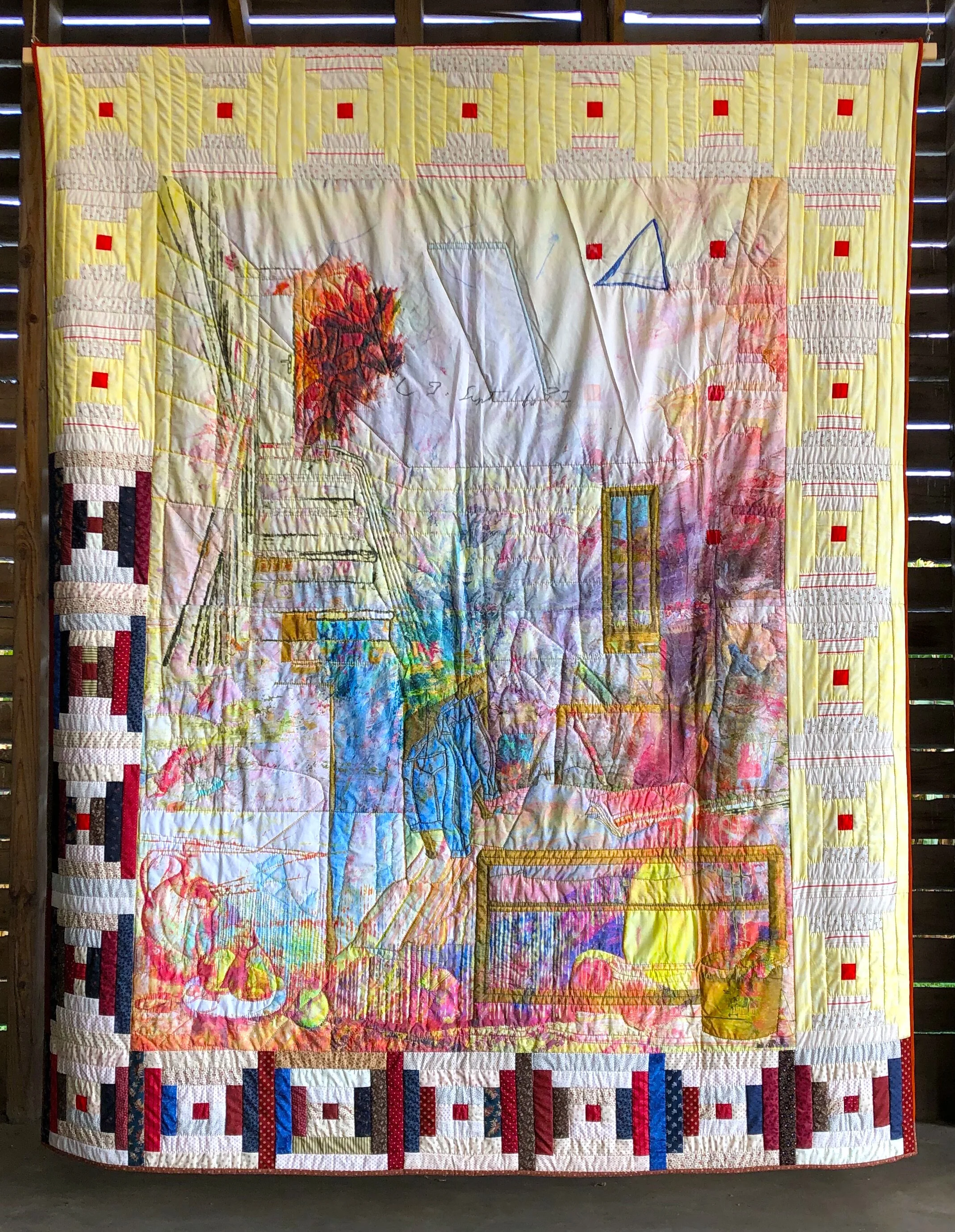
Jesse Krimes
Voices from the Heartland, an immersive art experience created by Jesse Krimes in 2019, foreshadowed the current conversation about divesting from racist systems of punishment and exploitation and reinvesting in communities. Now, the project ephemera serve as important points of reflection and re-imagination in an era of uprisings. Voices was produced in a barn in Lancaster County, PA to catalyze public dialogue about incarceration and racial oppression in small-town America, bring people into community with one other, and connect shared beliefs into a collective vision for building a safer and more just community. The immersive art experience challenged participants to boldly reimagine justice and safety. As visitors walk through a 5 acre corn maze, they were invited to reflect on the “maze” of the American justice system. At each dead end, a viewer encountered the story of someone affected by criminal justice practices and policies from communities across Pennsylvania; stories that collectively illuminate the terrible human cost of mass incarceration and the way in which poor, Black and Brown people are aggressively criminalized.
At the end of the maze, Krimes installed a series of works created in an Amish-Mennonite quilting tradition inside a collectively raised barn. The work was contextualized by a written timeline chronicling the County, state and nation’s progression from the founding of Pennsylvania, through slavery, to mass incarceration. An accompanying “timeline” quilt added visual texture to both the concrete evolution of the justice system in Lancaster County, and to the veritable explosion of incarceration in the county over the past several decades. Incarceration trend lines superimposed over the background imagery showed rising incarceration rates in Lancaster, in Pennsylvania, and in the United States, alongside the Black and white prison incarceration rates for Lancaster County.
While Lancaster is well-known for its Amish farming tradition and recognized for its historic role as part of the underground railroad and as a hotbed of resistance to slavery, the county’s recent history also underscores the national need for criminal justice reform in small cities and rural communities. The rate at which Lancaster sends people to state prison has increased more than 460 percent since 1985, and Black people are nearly fourteen times more likely to be sent to prison from Lancaster than white people. This stark reality stands in contrast with the region’s Amish-Mennonite traditions of antiracism and restorative justice. For both Lancaster and the nation, Voices affirms a vital truth: mass incarceration is close to every American community—and we all have a stake in reversing it.
Tumbling Blocks, 2019, hand-sewn fabric, image transfer, fabric paint, 78” x 98”
Log Cabin, 2019, hand-sewn fabric, image transfer, fabric paint, 80” x 100”
Crossroads, 2019, hand-sewn fabric, image transfer, fabric paint, 80” x 102”
North Star, 2019, hand-sewn fabric, image transfer, fabric paint, 80” x 102”
Drunkards Path, 2019, hand-sewn fabric, image transfer, fabric paint, 80” x 102”
Center of the Maze, 2019, wood, prison fixtures, corn, sign, 6’ x 9’ x 10’






